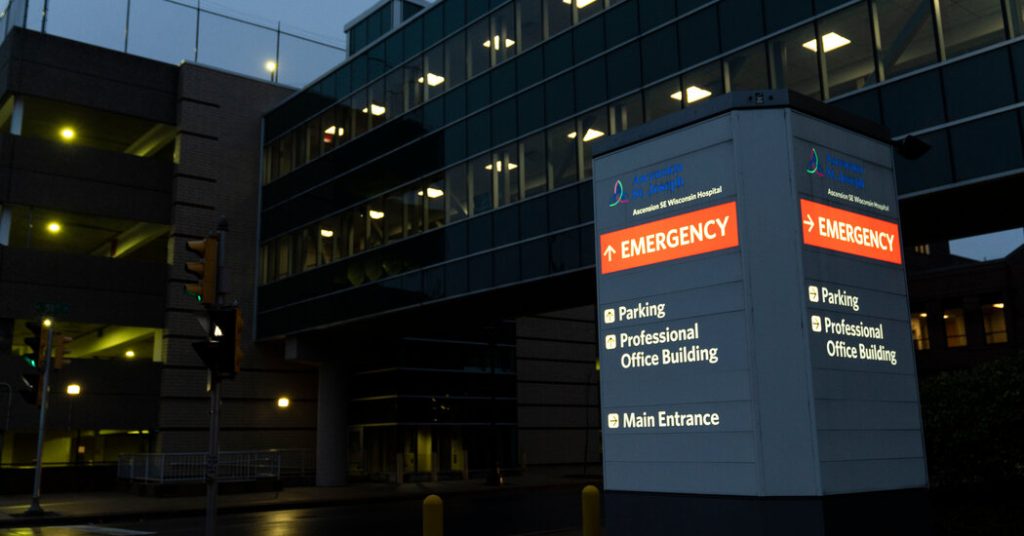Following a cyberattack on Ascension, doctors and nurses in more than a dozen states have resorted to paper and handwritten treatment orders due to the inability to access detailed medical histories through computerized records. Long wait times in emergency rooms have resulted from the delays in treatment caused by the lack of electronic uploads of lab results and machine readings like M.R.I.s. The cyberattack on Ascension, a large health system with 140 hospitals in 19 states, has impacted thousands of medical personnel, forcing them to utilize manual methods to treat patients.
The attack on Ascension, similar to one on Change Healthcare, has highlighted the risks of consolidation in the health care industry when one entity becomes crucial to the entire system. Ascension systems remain down indefinitely, leading to disruptions for medical professionals and patients alike. Some hospitals have been diverting ambulances, and concerns about the release of private medical information exist, leading to lawsuits from patients against Ascension. Large health care organizations are increasingly becoming targets for cybercriminals in order to disrupt the U.S. infrastructure.
Doctors and nurses are facing challenges in caring for patients due to missing pieces of medical history as a result of the cyberattack. The manual methods and lack of digital access have increased the workload and lowered the efficiency of health care providers. Nurses express concerns about medication errors, delays in test results, and uncertainty regarding patient updates. While Ascension is working on restoring operations and limited access to previous records, full digital access has yet to be restored, creating ongoing challenges for health care workers.
The ransomware attack on Ascension has worsened staffing shortages and labor relations, further straining the workforce. The attack has not only disrupted operations but also raised concerns about patient safety and the quality of care provided. Studies have shown increased mortality rates and lower care quality in neighboring hospitals following a cyberattack. The fallout from the Change attack has prompted discussions on accountability and responsibility for such breaches, as well as the need for increased government involvement in addressing cybersecurity threats to the health care industry.
Ransomware attacks on large health organizations, often orchestrated by cybercriminals with foreign ties, have become a lucrative and disruptive trend in the industry. The significant ransom paid by UnitedHealth to cybercriminals highlights the financial impact of such attacks. The Change attack has drawn increased government attention to the issue, with meetings between federal agencies and industry officials to address cybersecurity vulnerabilities. The size and vulnerability of large health organizations have made the delivery of medical care to millions of Americans increasingly at risk of cyber threats.
Cybersecurity experts emphasize the need for hospitals to employ paper-based methods in the event of a cyberattack, as shutting down systems is often necessary to prevent further infiltration by criminals. The economic feasibility of maintaining redundant systems in the face of ransomware attacks is questioned, as hospitals are forced to shift to manual methods to continue providing care to patients. As the health care industry grapples with the aftermath of these cyberattacks, the focus remains on restoring normal operations, minimizing patient risk, and enhancing cybersecurity measures to prevent future breaches.








